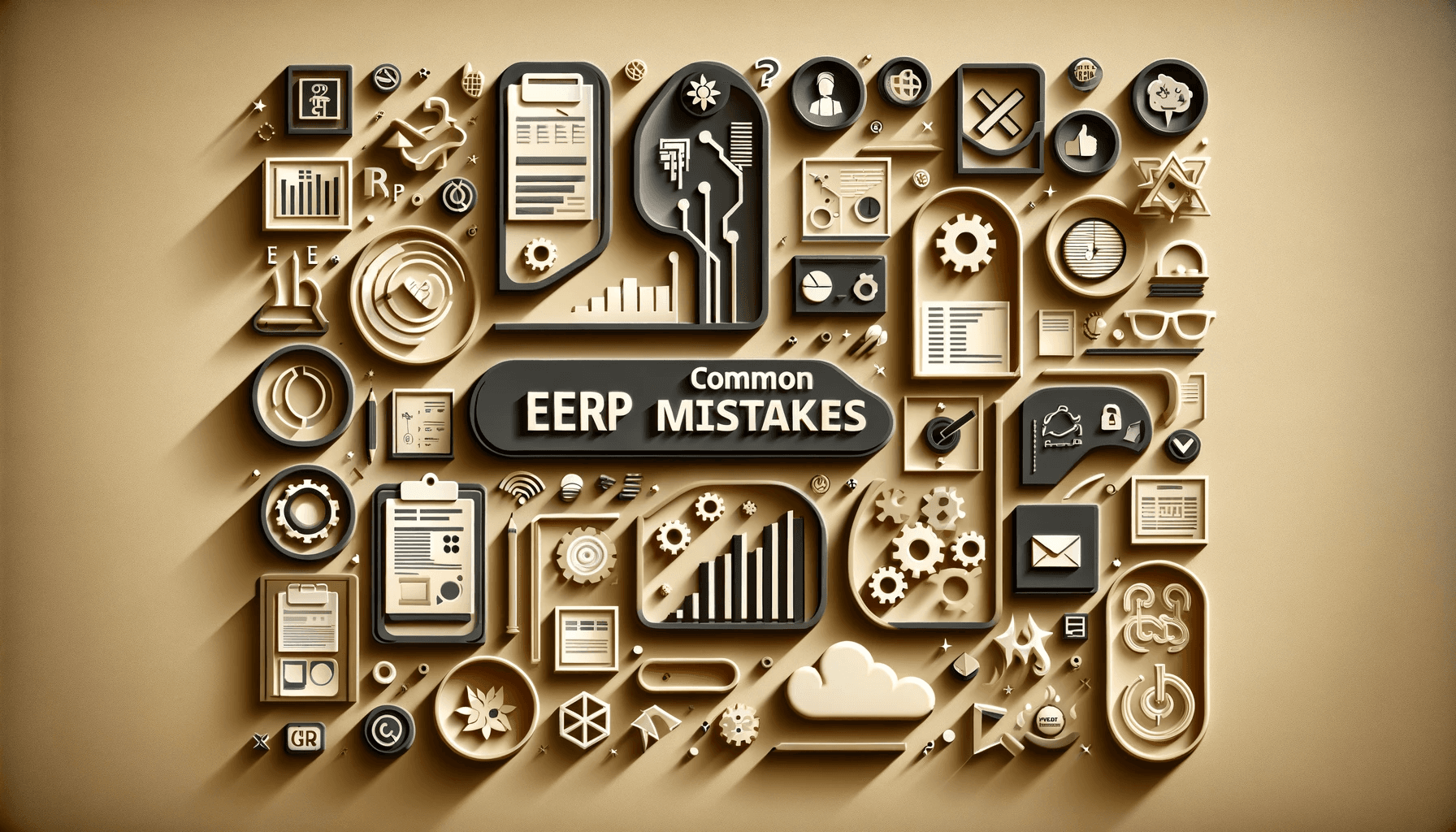
Common ERP Mistakes
Enterprise Resource Planning (ERP) systems are complex and powerful tools that help businesses manage their operations more efficiently. However, ERP implementations are not always successful, and there are several common mistakes that businesses make when implementing ERP systems. Here are some of the most common ERP mistakes.
Insufficient Planning:
One of the most common ERP mistakes is insufficient planning. ERP implementations require a lot of planning and preparation to ensure that they are successful. Many businesses underestimate the time and effort required for proper planning, which can lead to delays, cost overruns, and even failure.
Inadequate Training:
ERP systems are complex, and employees need proper training to be able to use them effectively. Inadequate training can result in low user adoption rates, errors, and inefficiencies. It's important to invest in comprehensive training programs to ensure that employees are proficient in using the ERP system.
Customization:
While customization can be beneficial, it can also lead to complications during the implementation process. Customization requires additional time and effort and can result in compatibility issues with future upgrades or updates. It's important to carefully evaluate the need for customization before making any changes.
Overlooking Data Migration:
Data migration is a critical component of ERP implementation, and it's important to ensure that all data is migrated correctly. Data errors or omissions can result in significant issues down the line. Proper data mapping and testing are necessary to ensure that data is accurately migrated.
Failure to Monitor Progress:
ERP implementations can be lengthy and complex, and it's important to monitor progress regularly to identify any issues and address them promptly. Without proper monitoring, issues can escalate, leading to delays and cost overruns.
Poor Vendor Selection:
Choosing the right vendor is crucial for a successful ERP implementation. Businesses should evaluate vendors carefully, considering factors such as experience, expertise, and customer service. Failure to select the right vendor can result in a poor implementation, leading to further issues down the line.
In summary, ERP implementations are complex and require careful planning, proper training, accurate data migration, regular monitoring, and a careful selection of vendors. By avoiding these common ERP mistakes, businesses can increase the chances of a successful implementation that improves operations and increases efficiency.
